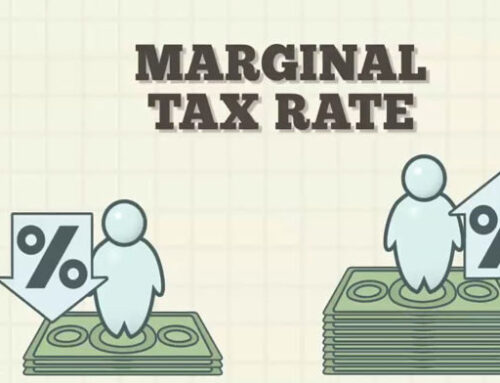Engaging in Online Trading Income: Reporting Transactions
If you actively participate in online trading income and closely monitor the market, you are part of a growing community of Canadians who manage their own investments. Online trading offers a fantastic opportunity to build your investment portfolio and generate additional income. However, you may have questions regarding how to report your transactions—whether as business income or capital gains or losses.
As a general guideline, if you purchase Canadian securities (e.g., stocks) as an investment, it is advisable to report the transactions as capital gains or losses. This approach is suitable for individuals who buy securities with the intention of holding them for a period to benefit from long-term price appreciation.
Conversely, if you engage in frequent buying and selling activities with the primary goal of making a profit, your transactions should be reported as business income. Day traders, for instance, who execute multiple trades within the same day, are considered to be conducting a business and should report their transactions accordingly.
Determining whether your online trading activities qualify as capital gains or business income can depend on various factors, such as the frequency and volume of trades, your investment strategy, and the nature of your transactions. It is recommended to consult with a tax professional or review the guidelines provided by the Canada Revenue Agency (CRA) to ensure accurate reporting.
Remember, accurately reporting your online trading activities is crucial for compliance with tax regulations. Seeking professional advice or referring to the CRA resources can provide you with the necessary guidance to navigate this aspect of your financial activities successfully.

Determining How to Report Your Income
To make a decision on whether to report your trading income as capital gains or business income, it’s essential to assess your trading pattern. Several factors come into play:
- Frequency of Transactions: Consider how often you engage in trading activities. Frequent trades may indicate a more active trading approach, potentially aligning with business income reporting.
- Duration of Holdings: Evaluate the typical length of time you hold stocks before selling them. Longer holding periods suggest an investment strategy geared towards capital gains reporting.
- Stock Market Knowledge and Experience: Assess your level of understanding and expertise in the stock market. A higher degree of knowledge may indicate an investment-oriented approach.
- Time Spent on Trading: Consider the amount of time you dedicate to trading activities. Extensive time commitment can suggest a more business-like approach.
The type of securities you primarily trade is also significant. If you focus on blue chip stocks, which are considered stable and reliable, and primarily aim for long-term growth and dividends, it indicates an investment strategy. Conversely, if you predominantly invest in riskier penny stocks that offer uncertain returns, it suggests a more speculative or business-oriented intention.
Remember that no single factor determines how you should report your online trading income. Having a high volume of trades alone doesn’t automatically classify you as conducting a business if your primary goal is to build an investment portfolio. Conversely, even a single transaction can be considered business income if it was made with the intention of quick profit.
Also Read: Are Gifts To Customers And Business Associates Deductible Expenses?
Ultimately, the collective assessment of these factors reveals a pattern that aligns with either an investment or business intention. It is advisable to consult a tax professional or refer to the guidelines provided by the Canada Revenue Agency (CRA) for further clarity based on your specific circumstances.
Tax implications of Reporting Transactions as Capital Gains or Business Income
From a tax perspective, here’s how reporting your transactions as capital gains or business income can impact you:
- Capital Gains: If you report your profits as capital gains, only 50% of the gains are taxable. This means you will be taxed on only half of the profit amount.
- Business Income: Reporting your profits as business income means the entire amount is fully taxable. There is no reduction or special treatment for business income, and it is subject to the regular income tax rates.
- Capital Losses: Capital losses can be used to offset capital gains, reducing the taxable amount. If you have capital losses, you can claim them against capital gains to lower your overall tax liability.
- Business Losses: Business losses are fully deductible against other sources of income. If you incur losses from your business activities, you can use them to offset income from other sources, reducing your overall taxable income.
- CPP/QPP Contributions: Business profits are considered pensionable for Canada Pension Plan (CPP) and Quebec Pension Plan (QPP) purposes. This means that if you report your trading income as business income, you may be required to make CPP contributions at the self-employed rate of 10.5%. For residents of Quebec, QPP contributions at the self-employed rate of 10.8% may also apply.
It’s important to consider these tax implications and determine the most appropriate reporting method based on your trading activities and intentions. Consulting with a tax professional or reviewing the guidelines provided by the Canada Revenue Agency (CRA) can provide further guidance tailored to your specific situation.
Can I ensure that my trading income will be treated as capital gains?
Yes, you have the option to guarantee that the sale or transfer of your stocks will be treated as capital gains or losses. To do so, you need to include the Election on disposition of Canadian securities (T123) form when you file your return in the same year that you sell or transfer those stocks for Online Trading Income.
It’s important to note that this election applies only to Canadian securities and cannot be made for stocks from other countries, such as the United States.
However, it’s crucial to understand that this election is permanent. Once you make the election, it cannot be changed or reversed in the future. Therefore, it’s essential to carefully consider the implications and seek advice from a tax professional before making this decision.

What other considerations should I keep in mind before making a decision?
It’s important to be aware that the Canada Revenue Agency (CRA) and Revenu Québec have specific guidelines regarding certain types of transactions for Online Trading Income. For instance, when it comes to short sales (selling an investment without expecting its value to decrease), the CRA and Revenu Québec typically consider the resulting gain or loss as business Online Trading Income. However, if the transaction was made to enhance the value of identical shares held as a long-term investment, it may be treated differently.
Additionally, the government may conduct audits on Tax-Free Savings Accounts (TFSA) if they suspect these accounts are being used as shelters for trading activities. If it is determined that the TFSA is generating business income, the financial institution that holds the account may be subject to tax assessment. This concern does not apply to Registered Retirement Savings Plans (RRSPs) as any income generated within those plans is taxed upon withdrawal, regardless of whether it is considered business or investment income.
Online trading has become increasingly popular in recent years, offering individuals the opportunity to invest in various financial markets from the comfort of their homes. However, it’s essential to understand that online trading income is subject to taxation in many countries. Reporting this income accurately is not only a legal obligation but also a key aspect of managing your finances. In this blog, we will explore best practices for reporting online trading income to ensure compliance with tax regulations and financial transparency.
1. Keep Detailed Records
The foundation of accurate income reporting in Online Trading Income is maintaining meticulous records of all your trading activities. This includes records of:
- Trade transactions: Document the details of each trade, including date, time, asset, quantity, purchase price, and sale price.
- Account statements: Regularly review and archive your online trading account statements, which provide a comprehensive overview of your trading activities.
- Capital gains and losses: Track the gains and losses associated with each trade, including any fees or commissions paid.
- Tax-related documents: Keep copies of tax-related documents, such as 1099 forms in the U.S. or equivalent forms in other countries, which provide information about your trading income.
2. Understand Tax Regulations
Familiarize yourself with the tax regulations governing Online Trading Income in your jurisdiction. Tax rules can vary significantly from one country to another and may also change over time. Key aspects to understand may include:
- Tax rates: Know the tax rates applicable to capital gains and trading income in your area.
- Holding periods: Some countries offer tax benefits for long-term investments with minimum holding periods. Understand these rules and their implications.
- Deductible expenses: Familiarize yourself with any allowable deductions, such as trading-related expenses or losses that can offset gains.
3. Report All Income Sources
Ensure that you report all sources of online trading income accurately, including:
- Gains from selling stocks, bonds, or other securities.
- Profits from trading forex or cryptocurrencies.
- Dividends, interest, or distributions earned from investments.
- Income from options or futures trading.

4. Calculate Capital Gains and Losses
Capital gains and losses are a critical component of reporting online trading income. Calculate these gains and losses accurately by subtracting the purchase price and transaction costs (e.g., commissions) from the sale price. Keep in mind that capital gains may be subject to different tax rates than other forms of Online Trading Income.
5. Consult a Tax Professional
If your online trading activities are complex or if you have significant income, it’s wise to seek the guidance of a tax professional or accountant with expertise in trading taxes for Online Trading Income. They can help you navigate the intricacies of tax regulations, optimize your tax strategy, and ensure compliance with reporting requirements.
6. Meet Filing Deadlines
Adhere to tax filing deadlines in your jurisdiction. Failing to file your Online Trading Income accurately and on time may result in penalties or legal consequences. Set reminders and allocate sufficient time to complete your tax returns.
Conclusion
Reporting online trading income is a crucial responsibility for anyone involved in Online Trading Income. By keeping meticulous records, understanding tax regulations, and seeking professional advice when necessary, you can accurately report your income, optimize your tax strategy, and remain compliant with tax authorities. Effective income reporting not only helps you avoid legal issues but also contributes to financial transparency and good financial management practices.
Recent Posts
FAQ
What should I consider when it comes to tax implications and reporting methods for my trading activities?
It's important to consider these tax implications and determine the most appropriate reporting method based on your trading activities and intentions. Consulting with a tax professional or reviewing the guidelines provided by the Canada Revenue Agency (CRA) can provide further guidance tailored to your specific situation.



